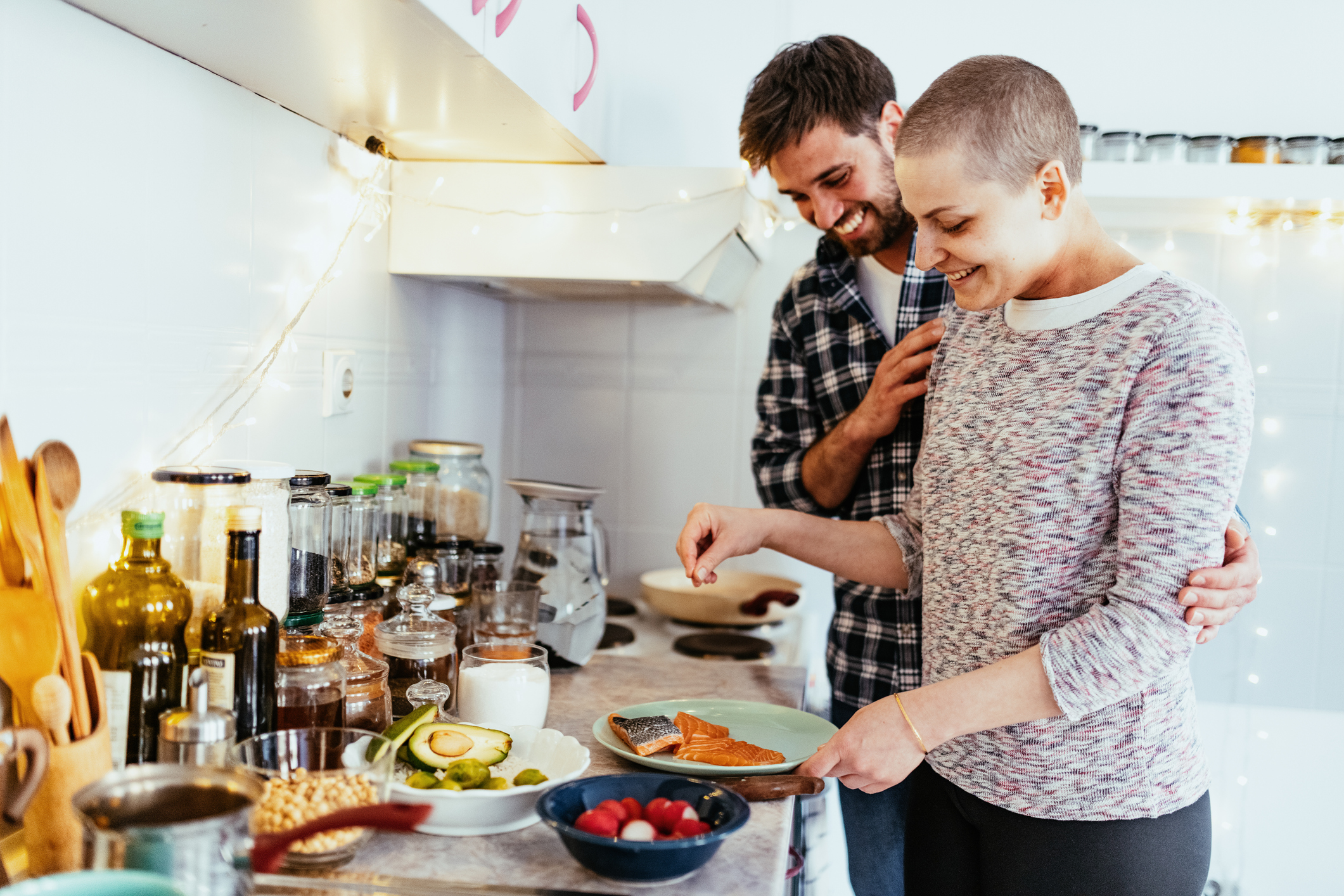5 tips for getting more nutrition during cancer treatment
By Anna Abel

If you were recently diagnosed with cancer, you may want to do everything you can to develop and maintain healthy behaviors. It may be tempting to make drastic changes to your diet. Your friends or family may recommend a name-brand cleanse, cutting out a certain food group, or intermittent fasting. Resist this advice.
First, the biggest challenge for many people with cancer is eating enough. Second, at the UAB O’Neal Comprehensive Cancer Center, you will have registered dietitian nutritionists (RDNs) guiding any special changes to your diet that are specific to your diagnosis and blood work.
Getting more calories
For most of us, eating usually isn’t a problem. But cancer is disruptive and stressful – both physically and mentally – so eating enough may be difficult at times. And when your body is working harder to function or recover from symptoms or taxing treatments, it will burn more calories than normal. Therefore, you likely will need more calories than usual just to maintain your normal weight during your cancer journey.
Also, nausea is one of the most common symptoms of cancer treatment, and this can affect your appetite and food intake. You may develop nutritional issues due to taking in too few calories, though this also can be caused by your type of cancer or other personal factors.
It’s important to talk to your doctor before making any changes in your diet, but here are some ways to help ensure that you are getting enough calories and nutrients:
- Pack snacks: Make it a habit of bringing more snacks than you think you’ll need to doctor visits, treatment appointments, and other outings. Nuts, whole grain crackers, and fruits are good choices because they are portable. A small cooler can give you more options, such as cottage cheese, yogurt, and boiled chicken. Choose more bland foods – not too sweet or spicy – to help prevent nausea or upset stomach.
- Multiple meals: You may not be hungry enough to get all the calories you need in the traditional three meals per day. Many dietitians recommend 4-6 meals per day, or three meals with several scheduled “snack meals.” Scheduling your meals using phone reminders can be helpful, so you don’t forget or see them as optional.
- Choose nourishing foods: Make sure to get plenty of protein through meat, tofu, beans, nuts, or seeds. And don’t forget to choose foods high in fiber, which helps your body use the nutrients in food, regulates digestion, and has many other benefits. Finally, eating a colorful plate of fruits and vegetables is a good way to get important vitamins, minerals, and helpful chemicals known as antioxidants – the more colors the better!
- Identify nausea-friendly foods: Some foods are better than others for avoiding nausea, such as chicken salad, yogurt, ice cream, and other foods that don’t have a strong smell and are eaten at a cool temperature. Sour foods such as citrus fruits, sour candies, and pickled vegetables can activate enzymes in your mouth and stomach that may reduce nausea. If you still struggle with nausea, try putting ginger in tea or smoothies, or try candied ginger chews (people taking blood thinners should speak with their doctor before consuming ginger).
- Be aware of bacteria: Avoid foods that may contain live bacteria and could be more dangerous to you than usual, such as unpasteurized juice or milk, raw or undercooked meat, and runny eggs. Your immune system is working hard enough already.
These are general tips for anyone diagnosed with cancer. Specific nutritional issues, digestive symptoms, or sudden weight changes should be discussed with your oncology doctors and nutrition specialists. Your ability to maintain nutrition can make a big difference in your overall well-being during cancer treatment and survivorship.
Anna Abel is a UAB nutrition sciences graduate who recently led a nutritional seminar for patients at the O’Neal Comprehensive Cancer Center.




